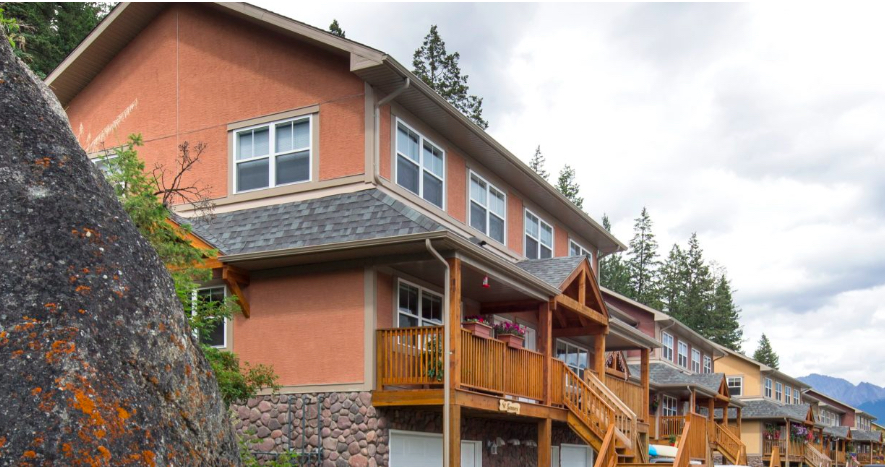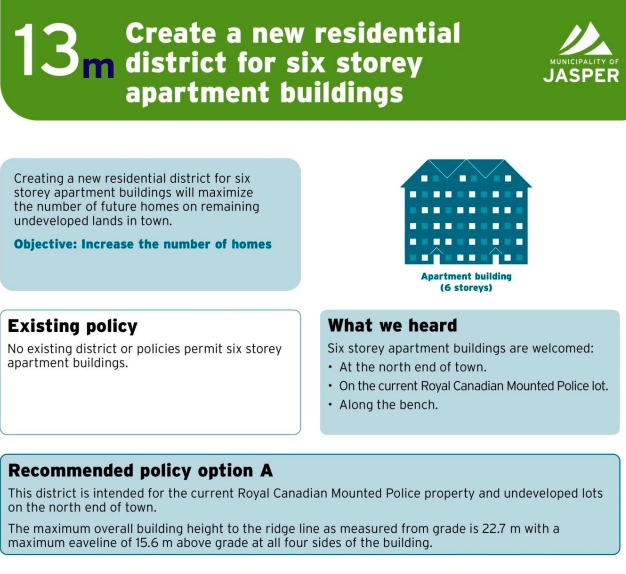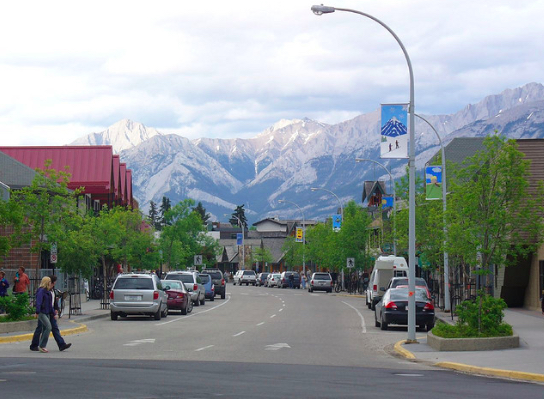But keeps parking requirements after hearing from concerned residents
Editor’s note: This article includes a correction (6:08 p.m. July 16) regarding council’s recommendation of a new residential district to accommodate six storey apartment buildings
Municipal council has ratified multiple proposed amendments to Jasper’s land-use policy to help increase housing density and address the long-term housing shortage that the 2024 Jasper Wildfire has exacerbated.
After hearing from residents who shared their perspectives on possible Land Use Policy amendments which would increase residential density, council endorsed and recommended to Jasper National Park to simplify the Land Use Policy for all users; provide more types of housing in Jasper; and increase the number of homes in the community.
However during the public hearing on Tuesday (July 8), after multiple residents spoke against it, council unanimously decided not to endorse removing minimal parking requirements for new residential developments.
One resident who spoke was Jasperite Dwain Wacko, who said “densification without parking is ludicrous.”
The July 8 session was a continuation of the June 17 public hearing on Jasper’s proposed land-use policy amendments.
Under Jasper’s current land-use policy, each primary dwelling unit requires a minimum of one parking stall. Administration proposed removing this requirement to increase the number of housing units and to allow property owners the freedom to decide how much parking they need.
According to recent community engagement sessions, 65 per cent of respondents were either “uncomfortable” or “very uncomfortable” with administration’s proposal, while only 28 per cent were “comfortable” or “very comfortable.”

Jasperite Art Laurenson warned that removing this requirement will allow developers to maximize the square footage of living space for profit and include few, if any, on-lot parking stalls.
“The parking problem still exists, but it’s just now it’s out on the street, and we all have to deal with it,” Laurenson said.
Resident Andrea Ziegler (disclosure: Ms. Ziegler is the publisher of The Jasper Local) encouraged council to manage residential parking, for example through a permit system, and to look to other jurisdictions for solutions.
“I think there’s a clear economic reward to having fewer parking spots on the property that you develop, dumping the parking into the public good, which is street parking,” Ziegler said. “I think while we might have over-indexed on parking and some of the development in the past, I think there is a risk that we under-index right now.”

As the Municipality of Jasper is still in the process of taking over land-use authority in the community from Parks Canada, council can currently only recommend land-use amendments to Jasper National Park’s superintendent. Administration anticipates Parks Canada will adopt these amendments.
Following the public hearing, council discussed the proposed amendment and agreed to maintain the current restrictions, although some members suggested Parks Canada could allow variances on larger developments if they provided “creative solutions” to parking.
“I do believe we have to have some parking requirements,” said Coun. Helen Kelleher-Empey. “Otherwise, we’re going to create chaos.”
Coun. Scott Wilson said the municipality had already rolled back parking requirements enough, noting how garden and garage suites did not require any stalls.
Coun. Ralph Melnyk added that the motion provided flexibility to developers for larger projects that can help Jasper move forward with densification without exacerbating the already difficult parking situation.
“We’d be opening the gate, letting the horses out and not being able to get them back,” Melnyk said.
Some amendments that council recommended include creating general policies for accessory buildings: permitting secondary suites in the multi-unit small lot dwelling district (R3a); permitting garden and garage suites in more residential districts; and allowing row housing along the ground level of apartment buildings.
Council also recommended developing a policy for bike parking for multi-unit dwellings and apartments; increasing the maximum site coverage for garage and garden suites; allowing one garage suite and one garden suite per primary dwelling; increasing the maximum eaveline height of multi-unit dwellings in R3a; and increasing the height of apartment buildings to four storeys in the multi-dwelling district (R3b).
Council decided to recommend to create a new residential district for six-storey apartment buildings.

Council asked administration to determine the location that this district would be implemented at a later date.
Kelleher-Empey spoke against a six-storey complex in the centre of the community.
“We’re kind of losing the heritage of Jasper, the small-town feel. It becomes kind of like concrete jungle in the middle of town.”
Council moved to combine similar residential districts; the initial motion was defeated after a 3-3 vote (Coun. Rico Damota was absent from the meeting). Instead, council approved only allowing multi-unit dwellings in the one-unit and two-unit dwelling districts.
Council also declined to allow three storeys of residential above the first floor of commercial buildings, since the business community has long advocated for more commercial accommodation in Jasper.
Paul Butler, executive director of the Jasper Park Chamber of Commerce, wrote in a letter to council that a modest increase to commercial accommodation, which he described as “under-built” in Jasper, would invigorate the economy and support resident services.

“It’s important that in our determination to solve Jasper’s long-term housing shortage, we do not overbuild, or build in areas better suited to other uses,” Butler wrote.
One proposed amendment was to change one-unit dwellings to discretionary use, except for homes destroyed by natural disasters, which would incentivize developers to consider adding more housing units to their lots.
Coun. Kelleher-Empey opposed this; she said she did not want to impede that right for property owners. No motion was made on the proposed amendment.
Peter Shokeir, Local Journalism Initiative // info@thejasperlocal.com
The Local Journalism Initiative is a federal program which supports the creation of civic journalism that covers the diverse needs of under-served communities across Canada. The Jasper Local uses the LJI to access Jasper-based reporting to better serve its readers and is grateful to The Fitzhugh’s Mr. Shokeir for his coverage.


